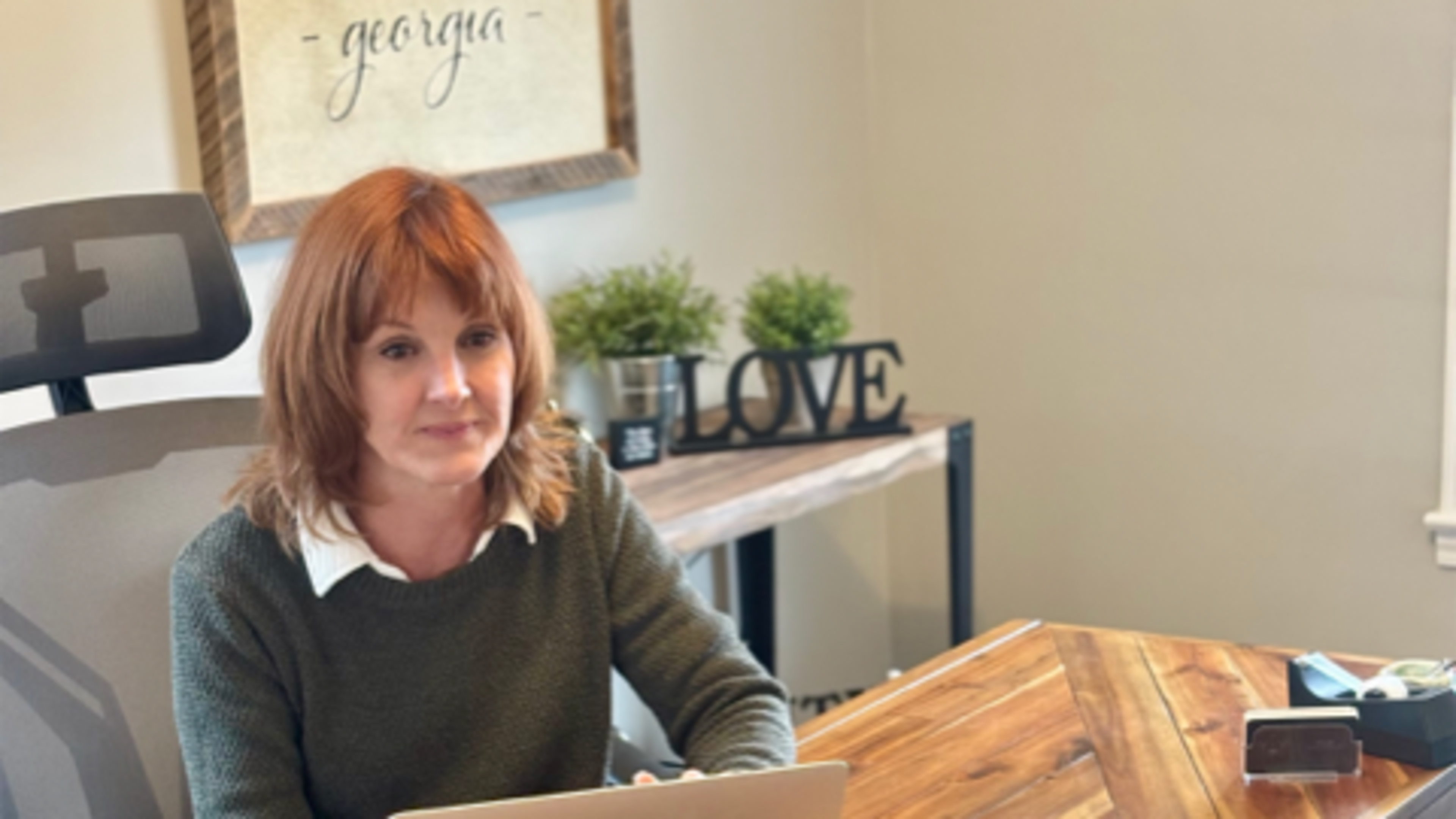Networking app offers ‘lifeline’ to men in recovery

Christopher Finley understands what it’s like to relapse after recovering from alcohol addiction. He had been sober for 12 years after completing a residential addiction treatment program. But he relapsed after the pandemic, about 1½ years ago.
He said he believes a divorce, other changes and isolation from those who share similar struggles caused him to turn to alcohol again.
“We still weren’t getting out that much. The lack of connection and support lends itself to relapse,” Finley said.
At an alumni meeting of No Longer Bound — the addiction treatment program in Cumming that Finley attended — he learned about a new networking app, Connector, that would allow him to stay in touch with his peers in recovery.
No Longer Bound offers a yearlong treatment program to about 75 men a year battling drug and alcohol addiction. The 30-year-old nonprofit group recently partnered with the Roswell startup Connector Technologies to offer the free app to its alumni.
Finley, now 45 and living in Cumming, said the Connector app offered him a “lifeline” in his recovery since he began using it in July. While he knows he could call or text his other recovery peers, he said the app allows him to see if they are nearby for a more personal interaction.
“There’s nothing like face-to-face meetups,” he said. “I need people to support me in the recovery. It’s helpful if they have been through the same program, the same process, speak the same language and live in recovery.”
Finley said he began binge drinking when he was 18 and was arrested several times before he discovered No Longer Bound.
Alcohol abuse, alcoholism and alcohol use disorder kills over 3 million people each year, accounting for up to 6% of global deaths, according to the National Center for Drug Abuse Statistics.
There are nearly 4,000 alcohol-related deaths a year in Georgia compared to about 141,000 nationally, the Center reported. Nearly 4% of those are younger than 21, the national center reports. Meanwhile, about 15% of Georgia adults over 18 binge drink at least once per month.
About 1,400 drug overdose deaths occur each year in Georgia. Only 2% of the nation’s overdose deaths occur in Georgia, though, and the overdose death rate is nearly 37% below the national average.
No Longer Bound offers participants family counseling and vocational training alongside addiction treatment. It also offers job placement to help them transition back into life afterward. About two years ago, the program began focusing more on care for alumni who leave the program, said Carol Smith, chief development officer.
The program recently decided to offer the app as another tool, in addition to the new alumni support group, to help them stay connected after they leave the program. “It was an opportunity to try something. We will try it and see how it goes,” Smith said.
No Longer Bound charges $15,000 for treatment, but 75% of the participants receive financial assistance, she said. Intake fees cover only a small portion of the program’s funding. The majority comes from fundraising and donations, followed by thrift store sales and car donations, she said.
The Connector app is supported through advertising revenue, said Steve Eppinger, company founder and CEO.
While there are other apps on the market to help those recovering from addiction, Eppinger doesn’t believe their main focus is to help users maintain connection with peers after treatment or expand their network to improve recovery by allowing them to connect with others facing similar addiction challenges who may be nearby.
The version of the Connector app designed for No Longer Bound links alumni and companies offering jobs or other relevant opportunities, Eppinger said.
To keep interactions discreet, members use an access code when registering. The networking platform uses artificial intelligence to recommend connections based on the user’s location, personal profile and networking interests.
Finley said the app allows him to find those who share similar experiences so he doesn’t have to battle addiction alone.
“Life continues while you are in recovery. In the past, I’d medicate all my struggles and challenges in life and not have to deal with it,” he said. “Anything that lowers the barrier to connect makes it easier to stay in recovery.”
Alcohol Addiction in Georgia
About 11 people die a day from excessive alcohol use, nearly 4,000 deaths a year or nearly 5 deaths for every 10,000 adults, 18 and older.
About 82% of deaths from excessive alcohol use are adults 35 and older.
Nearly 70% of people who die from excessive alcohol use are male.
About 55% of excessive alcohol use deaths are from chronic causes.
Among binge drinkers, the median per binge is about 5 drinks. The 25% most active drinkers consume a median 7 ½ drinks per binge.
Adults who binge-drink do so more than 1 ½ times a month. The 25% most active drinkers binge about 4 times per month.
Source: National Center for Drug Abuse Statistics.
Drug Overdoses in Georgia
About 1,400 overdose deaths per year.
About 13 deaths out of every 100,000 residents are due to overdoses
The overdose death rate is nearly 37% below the national average
Nearly 2% of all deaths are from drug overdose.
Of nationwide overdoses, 2% occur in Georgia


